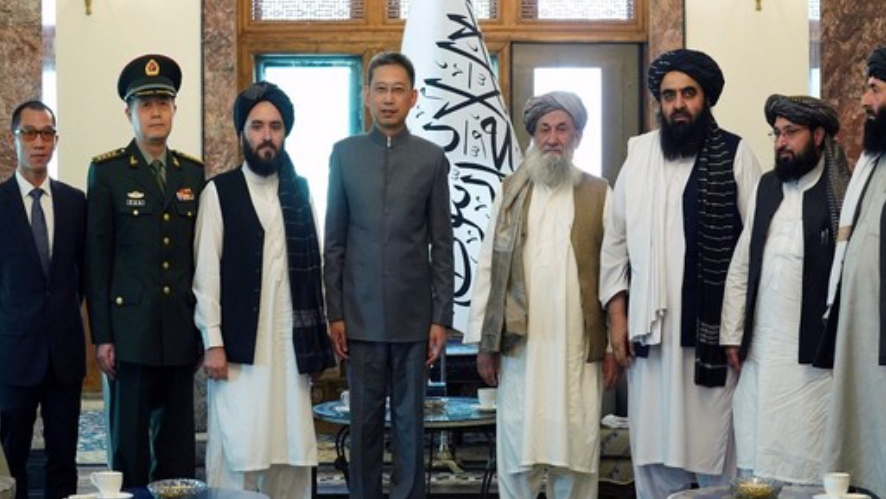China's Influence Operations Abroad
- SIS Blog

- Dec 5, 2023
- 4 min read

By Anshu Kumar
Since 2006, all Chinese Defense White Papers have mentioned that China’s composite national strength, international standing, and influence are increasing. China’s growth as a global power has been accompanied by its influence operations abroad. With the growth in economic wherewithals, China has invested a vast chunk of resources to shape opinions and policies beyond its borders.
China invests heavily in controlling its narrative by influencing international media outlets, using economic bait to lure politics and academia abroad to emphasise Chinese ‘interests’, and using Confucius Institutes to promote the Chinese language, culture, and propaganda. One of the finest examples of Chinese influence abroad was the US Congress’s decision to renew the Most Favoured Nation (MFN) Trade Status for China in the immediate aftermath of the Tiananmen Square massacre. This was surprising given that the American ‘engagement policy’ was a strategy to exploit the Sino-Soviet Chasm and rally Chinese support against the Soviets. By 1994, around 800 major firms and trade associations were involved in ‘one of the “largest lobbying efforts ever” mounted by American business’ to pursue Washington in renewing MFN status. At Boeing’s headquarters in Seattle, Jiang Zemin’s warning was explicit- if they could not do much to influence Washington, China would move its businesses elsewhere. Apart from American firms’ economic rationale, the continued ‘Chimerica’ in the unipolar world was a manifestation of Chinese influence.
The United Front Work (UFW), under Xi Jinping, has been instrumental in fostering China’s influence operations by cultivating overseas Chinese communities, personnel overseas or returned, business persons, and political individuals to promote Chinese propaganda and suppress anti-Chinese Communist Party (CCP) activities. Xi has provided the UFW with elephantine resources to ensure China’s domestic stability and the extension of its national power globally, by endeavouring to co-opt ‘politically non-communist forces at home and abroad’. For this pursuit, Xi nominated IT talents (such as opinion leaders in cyberspace or IT entrepreneurs), competent personnel having studied abroad, and successful younger business people. Suzuki argues that the Chinese authority is of the view that by mobilising Chinese people they could persuade several foreign believers of the mutual benefit of, say the Belt and Road Initiative (BRI).

One of the countries that woke the globe up to the Chinese influence on domestic institutions was Australia. China's vast influence can be seen in Australia in the political parties it donates to, the Chinese-language media it controls, the way it cultivates some people while intimidating others, and the dominance of its Chinese community and student organizations. In a one-of-a-kind event, Australian senator Sam Dastyari defended China’s illegal claims in the South China Sea (SCS) during the 2016 Australian federal election campaign. Dastyari having illicit links with Huang Xiangmo (a major financial donor to large Australian political parties and a Chinese citizen with close connections to the UFW department) remarked: ‘The Chinese integrity of its borders is a matter for China’. Notably, here ‘borders’ meant all portions of the SCS claimed by China. This was against the policies of his own opposition party as well as the government of Australia. Likewise, in 2019, anti-CCP protestors voicing Hong Kong concerns in Australia were overwhelmed by pro-CCP Chinese students who flooded Australian city streets and university campuses with support and encouragement from Beijing to brace CCP’s interests. This incident brought to light how Beijing-friendly media outlets, including radio and newspapers with CCP ties and Chinese-language social media, distort the narrative in Beijing's favour.
On a similar note, Yang Jian, who has spent fifteen years in China’s military intelligence sector and had links with the UFW department, was elected to New Zealand’s Parliament in 2011. During his tenure in a high-ranking legislative position pertaining to China policy, he was accused of softening New Zealand's stance towards China. Not surprisingly, China is heavily involved in politics, media, and the movie industry of its systemic rival— the US. According to the Justice Department’s reports, under the U.S. Foreign Agents Registration Act (FARA), china spent around $280 million in the second half of the 2010s to influence US politics.
In recent months, Meta took down the ‘largest’ Chinese influence operations in the world, where a network of fake accounts (7,704 accounts, 954 pages, and 15 groups), linked to Chinese law enforcement, were praising China’s policies, denigrated U.S. and Western foreign policy, and attacked journalists and researchers engaged in criticising the Chinese government. However, these endeavours to influence foreign governments are not only confined to industrially advanced democratic countries. China is equally involved in influencing states in Southeast Asia, such as Malaysia, the Philippines, Cambodia, and Myanmar. Cambodia and Myanmar are particularly significant as China is eyeing a naval base and a deep-water seaport in these states, respectively.
China engages in influence operations to shape a more favourable setting for achieving its ends and reinforcing division within and among American allies and partners. Greece’s vetoing of a European Union condemnation of China’s human rights record at the UN is a case to look at. It is a reminder that merely hard power does not constitute national strength and states can employ covert and soft power means, that complement and reinforce hard power, to their ends. Albanese’s recent visit to China to mend ties in a favourable hue may be a matter of concern to the US and its allies. Though the support from Chinese-Australian voters may not be a causal factor in such a reset of ties, it could ‘well be a byproduct of stabilising the relationship with Beijing’.
Anshu Kumar is a Master’s Student at the School of International Studies, Jawaharlal Nehru University, New Delhi. He has worked at the Centre for Land Warfare Studies, New Delhi, India.




